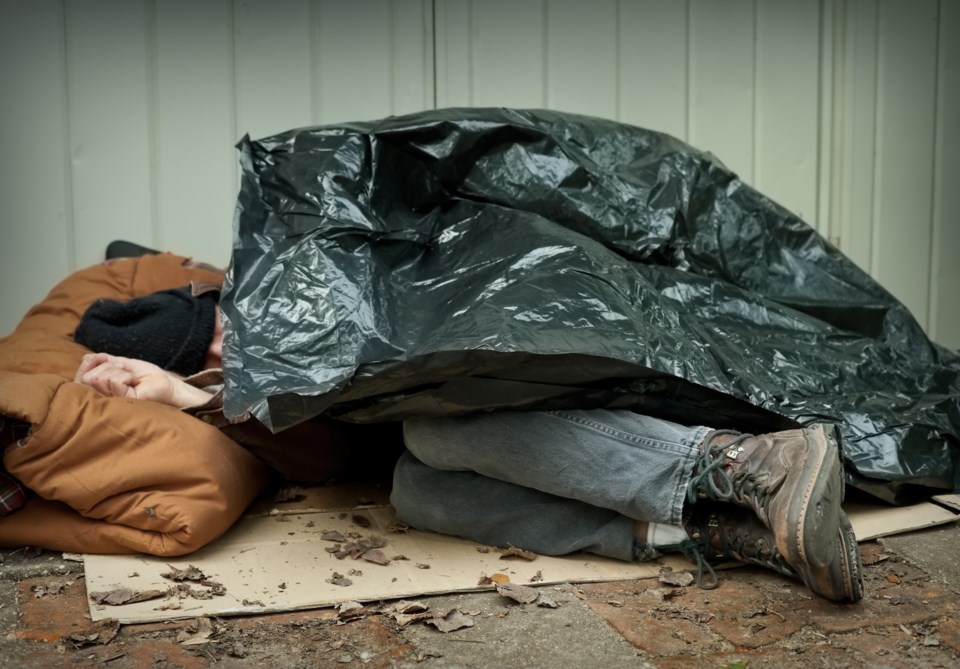CollingwoodToday welcomes letters to the editor at [email protected]. Please include your daytime phone number and address (for verification of authorship, not publication). The following letter was submitted by Jennifer van Gennip and Suzanna McCarthy on behalf of the Simcoe County Alliance to End Homelessness (SCATEH).
*************************
Our whole community is better off — more healthy, happy and resilient — when everyone has a safe, affordable, hopeful place to call home. This has never been more evident than during a global pandemic where we are being instructed to stay home to stop the spread of a virus.
As noted in the Canadian Alliance to End Homelessness Recovery For All campaign, “the public is right now feeling some of the fear and anxiety that our homeless neighbours feel every day,” and as we recover from COVID-19, we must make sure those experiencing homelessness are not left behind. This is why SCATEH endorses the Just Recovery Simcoe movement.
Homelessness is a result of policy choices made at the federal, provincial, and municipal levels. It began when the federal government stopped investing in social housing in the 1990s, and it has been perpetuated by structural racism, growing income inequality, and the financialization of the housing market.
In our 2018 Simcoe County Homeless Enumeration, 697 of our neighbours indicated that they were experiencing homelessness. This included people couch surfing, sleeping in shelters, and individuals living outdoors. COVID has only exacerbated this. On any given night in Barrie, outreach teams are seeing 45 to 55 individuals sleeping outside.
Shelters are not a permanent solution. Extended shelter stays reinforce the identity of homelessness and exclusion from full participation in society, and the rehousing journey becomes more difficult.
This is why we are now faced with the critical and urgent need to create supported housing.
Through the Built For Zero campaign, Simcoe County has committed to ending chronic homelessness by the end of 2024. This aligns with the recognition of housing as a human right by the Canadian government in 2019.
To do that, we have adopted the Housing First philosophy, where people experiencing homelessness are offered housing as the first step in stabilizing their lives, not a prize for proving their worthiness through steps to sobriety or self-improvement.
We have the beginnings of an infrastructure in place now in Simcoe County to support people in our regional Housing First program, but we need more affordable units. We also need to continue to make sure the supports we offer honour and promote autonomy, dignity, self-determination, and social inclusion.
Next, we need to couple this with a strong homelessness prevention program. Effective homelessness prevention will need to address structural and systems-level problems, including lack of affordable housing, low-wage and precarious work that leaves even people with full-time jobs unable to pay their rent, and health and corrections institutions that discharge people into homelessness.
Barrie’s new Health Accord is a promising step toward the type of commitment and action that will be required from other sectors to achieve this goal.
Ending homelessness requires more than housing. In her book, A Complex Exile: Homelessness and Social Exclusion in Canada, Erin Dej lays out in academic terms what many have known for years – the solution to homelessness goes beyond housing. It is equally about community, connection, and belonging. There is a role here for service providers, but also for society at large.
As Dej concludes: “Solutions to homelessness must account for the homeless experience on a human level. Exclusion is more than not having a house or not being part of the workforce. It often comes to define the core of who somebody is. Until people feel included we cannot truly end homelessness.”
Jennifer van Gennip and Suzanna McCarthy
Simcoe County Alliance to End Homelessness
*************************



